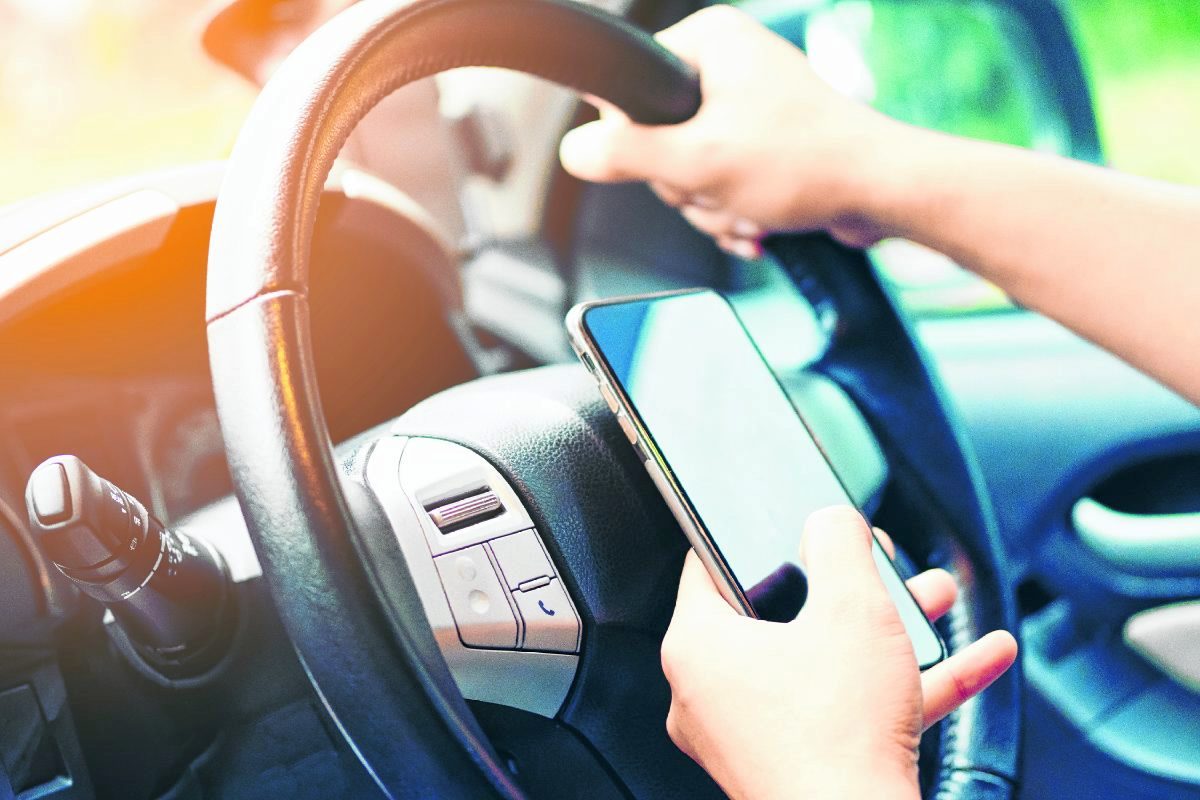Gov. Eric Holcomb signed 84 bills into law this year, many of which take effect today, most notably one that strengthens penalties for drivers who have their hands on their cell phones while their car is moving.
The distracted driving law, House Enrolled Act 1070, requires that Hoosiers keep their hands off their cell phones while driving unless they are making an emergency 911 call.
The law does not say motorists cannot use their phones at all, but they can’t have it in their hands. Motorists may still use GPS, change their music or make non-emergency calls using a hands-free device such as a dash-mounted cradle or voice-operated technology, the law says.
"I would probably recommend not using it at a stoplight or while you’re stopped temporarily," Johnson County Prosecutor Joe Villanueva said in a Public Service Announcement his office released over the weekend.
"If you happen to roll forward, even a couple inches, and a police officer sees you, technically you are in violation of the statute," he said.
During a traffic stop, police officers cannot take a driver’s cell phone and scroll through it to see what they were doing, or hold it as evidence, Villanueva said.
Police can now fine a driver up to $500 for violating the law, and repeat offenders could have their license revoked.
Indiana State Police officials say the new law could decrease the odds of being in a crash by as much as 400%. Typing or reading a text takes a driver’s eyes off the road an average of five seconds; if they’re driving 55 mph, drivers would travel the length of a football field during that time, state police said in a recent news release about the law.
Here is a look at some other laws that take effect today:
>>Senate Enrolled Act 1 raises the smoking age to 21. Stores may not sell cigarettes, cigars, vaping devices or vaping liquids to those under 21. Hoosiers under 21 may not possess these products and may not enter a smoking store.
>>The marriage age in Indiana is raised to 16 from 15 under House Enrolled Act 1006. The law also repeals the previous parental consent provision and requires approval from a judge instead. Teens may marry an individual up to four years older and may do so only after pre-marriage counseling and with a written order from a juvenile judge, the law says.
>>Senate Enrolled Act 409 makes several changes to the state’s child labor law. The new legislation increases the maximum length of a workday and workweek for minors ages 16 to 18, but makes changes to when a workday can start and end for the age group. Minors 16 to 18 may work up to nine hours per day, 40 hours in a school week or 48 hours in a non-school week. Minors 16 to 18 may work in certain occupations until 10 p.m. on school nights; and may work until 11 p.m. on a school night with written permission from the minor’s parent, the law says.
The same law also makes it so that minors ages 14 to 16 may work later during the summer. Minors 14 to 16 may not work before 7 a.m. or after 7 p.m.; but may work until 9 p.m. from June 1 to Labor Day, except on a day that precedes a school day, according to the law.
>>With Senate Enrolled Act 109, child victims of sex crimes have until five years following the victim’s 31st birthday to report the crime if new DNA evidence, a recording or a confession emerges, the law says.
>>Hoosiers 18 to 55 may update their eyeglasses or contact lens prescription via telemedicine under Senate Enrolled Act 19. This law applies only to Hoosiers who have had an in-person exam within the last two years and excludes those who have certain eye conditions.
>>House Enrolled Act 1235 will cost Hoosiers 10 cents per month. The law authorizes the Statewide 911 Board to raise the monthly 911 fee to $1.10 from $1. This charge will appear on phone bills to pay for 911 centers throughout the state.
>>Senate Enrolled Act 179 directs county election boards to enact several security measures to protect election integrity and ensure that voting machines and electronic poll books are ready to go on election days. Some of these new measures include testing a set proportion of machines that will be used during the election, providing the state a battery replacement plan for voting machines and poll books, a requirement to test batteries prior to an election and requiring malware detection software to be installed on USB drives used to load ballots onto machines, according to the law.
Several laws have already been enacted. Some bills, including hold harmless legislation for local schools, were passed with an emergency clause allowing them to take effect immediately.
A few bills that passed during this legislative session will not take effect yet, giving entities involved more time to prepare. For example, effective January 1, 2021, diabetics may obtain insulin without a prescription, and selling insulin to someone without a prescription will no longer be a crime under Senate Enrolled Act 255.
And effective July 1, 2021, healthcare providers will be required to disclose a “good faith estimate” of the cost for non-emergency care before performing care, referring patients or scheduling procedures, under House Enrolled Act 1004. Some providers may begin providing estimates early, but all are required to do so by this time next year.
For a full list of new laws, visit in.gov/gov/2020billwatch.





